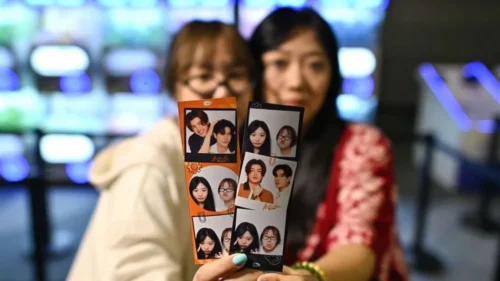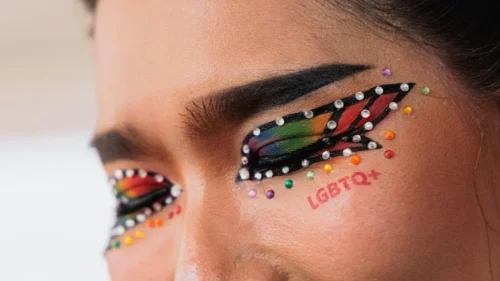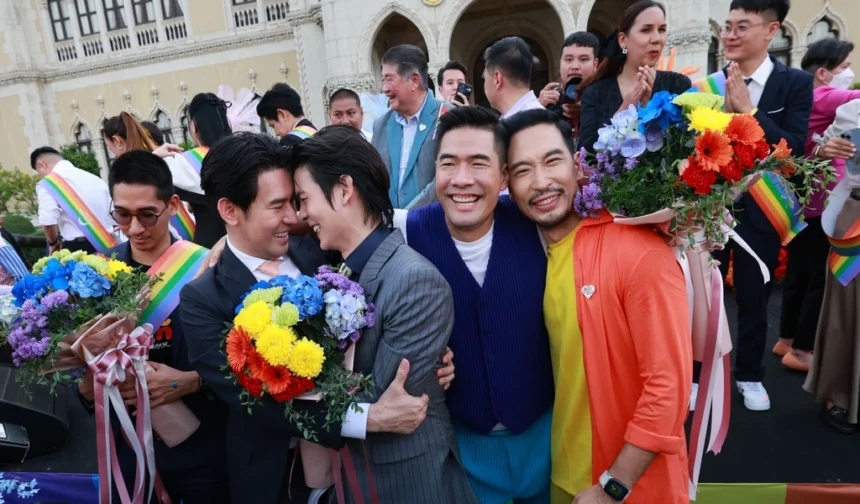Ann “Waaddao” Chumaporn describes the journey leading to this moment. On Thursday, Thailand will officially legalize same-sex marriage, with over one hundred couples exchanging vows amidst a vibrant celebration at one of Bangkok’s largest malls.
The same question posed during the extensive campaign for the equal marriage law arises again: why Thailand? Why are there no other countries in Asia besides Taiwan and Nepal?
Individuals believe that they possess the solution. Thailand is renowned for its acceptance and tolerance of individuals who identify as lesbian, homosexual, bisexual, or transgender.
They have been evident in all aspects of life for a long time. Thai individuals are generally laid-back in their approach to life.
“Mai pen rai” is a national catchphrase that translates to “no big deal.” LGBT lifestyles are not prohibited by Buddhist beliefs, which are adhered to by over 90% of Thais. Undoubtedly, equitable marriage was inevitable.
Why Thailand is Leading the Way for LGBT Rights in Asia
Nonetheless, it was not easy. Ms. Waaddao, who organized the Bangkok Pride March, acknowledges that it was not easy.
Twenty-five years have passed since the inaugural Pride march in Thailand. The march was chaotic and unfocused, and it was difficult to obtain police sanction at the time. From 2006 to 2022, there were only two marches. The prospect of violence necessitated the cancellation of a Pride march scheduled for Chiang Mai in 2009.
Ms. Waaddao continues, “We were not accepted by society or our own families.” “There were times when we did not think marriage equality would ever happen, but we never gave up.”

Despite Thailand’s general acceptance of LGBT individuals, achieving equal rights, including marriage, necessitated a resolute campaign to alter societal and Thai official attitudes. Additionally, attitudes have evolved.
Chakkrit “Ink” Vadhanavira and his companion were actors starring in television series when they began dating in 2001. At that time, the Thai Ministry of Health continued to officially classify homosexuality as a psychiatric illness.
“At that time, society was not amenable to the portrayal of gay men in prominent male roles.” Mr Chakkrit recollects, “We were very stressed by the abundance of unsubstantiated rumours that circulated in the media.”
“We decided then that if we were going to date each other, we had to leave showbiz.”
Their successful production company has kept them out of the public eye for over two decades, although they are still together.
Their industry deserves some recognition for the significant changes during that period.
According to Tinnaphop Sinsomboonthong, an assistant professor at Thammasat University who self-identifies as homosexual, the portrayal of LGBT characters in Thai TV dramas, ranging from comical oddities to mainstream roles, has had a significant impact.
“Nowadays they represent us as normal characters, like you see in real life,” he emphasizes. “The LGBTQ+ colleague or neighbor you may have at work.” This had a significant impact on the perceptions and values of all generations.
The Boy Love dramas have been instrumental in educating the broader society about the importance of tolerance, full acceptance, and equal rights for all community members.

The popularity of these romantic television dramas, which depict love affairs between attractive young males, has increased significantly in the past decade, particularly during the Covid-19 pandemic.
They are one of Thailand’s most successful cultural exports, with exceptionally large audiences in countries like China. Streaming networks have garnered hundreds of millions of views for series such as My School President and Love Sick.
Simultaneously, activists became increasingly united and focused in their efforts to amend the law. The Rainbow Coalition for Marriage Equality was established after the Change 1448 campaign, which brought together various LGBT groups. 1448 is the clause in the Thai Civil Code that defines marriage.
They established partnerships with various organizations that pushed for greater rights and freedoms in Thailand, enabling them to work alongside political parties in parliament to shape their legal stances.
Public perceptions were also altered by the government’s recognition and promotion of Thailand as an appealing destination for LGBT travellers and the resumption of Pride marches in 2022.
Mr. Tinnaphop asserts, “We did not engage in a physical altercation; rather, we engaged in negotiations.” “We knew we had to talk to Thai society, and little by little, we shifted attitudes.”
Political developments in Thailand also facilitated the passage of the equal marriage law through parliament.
The country was under the rule of a conservative military government for five years following a coup in 2014. The government was only willing to consider the recognition of civil partnerships for LGBT couples, but they were not granted complete rights or inheritance.
However, Future Forward, a new juvenile reformist party that fully supported equal marriage, unexpectedly won the 2019 election, returning Thailand to civilian rule. They secured the third-largest number of seats, which indicates a growing desire for change in Thailand.
A controversial court verdict leading to the dissolution of Future Forward sparked months of student-led protests, which called for comprehensive reforms, including limitations on the monarchy’s power.
The LGBT campaigners were prominently featured in those protests, which elevated their national profile. The protests ultimately dissipated, and numerous leaders were apprehended for criticising the monarchy’s role.

The successor to Future Forward, now called Move Forward, excelled beyond all other parties in the 2023 election, securing more seats than in 2019. It was once again clear that people of all ages in Thailand yearned for change.
Conservatives opposed Move Forward’s proposal for comprehensive political reforms, which prevented it from establishing a government.
At this point, the debate over equal marriage had calmed, with few dissenters remaining. Despite being formed without Move Forward, the coalition government swiftly gained majority support from the public by passing the legislation, even though it faced significant criticism and unpopularity.
Nevertheless, Thailand is an anomaly in the Asia region. It is unlikely that many other countries in the region will follow suit.
What Thailand’s Marriage Equality Law Means for Same-Sex Couples in Asia
The concept of equal marriage is rendered impossible by the influence of Islam in Brunei, Indonesia, and Malaysia. LGBT communities in Brunei are subject to prosecution and discrimination; the death penalty is enforced for intercourse between males.
In the Philippines, there is an increasing acceptance of openly cohabitating LGBT couples. However, the Roman Catholic Church is vehemently opposed to same-sex marriage.
In Vietnam, as in Thailand, there are no religious or ideological impediments; however, it is challenging to campaign for legislative reform under a repressive regime, as was the case in Thailand. The situation is substantially identical in China. Equal marriage cannot occur until the communist party in power, which lacks any indication of doing so, approves it.
The outlook is bleak, even in democracies such as Japan and South Korea, where political parties are predominantly conservative and dominated by older males.
Chae-yoon Han, the executive director of the Beyond the Rainbow Foundation in South Korea, asserts that conservative Christians are the primary obstacle.
“Most, if not all, politicians in the conservative party of President Yoon are devout Christians, and they have framed marriage equality as a ‘leftist agenda’, which could potentially open society to a ‘leftist, communist takeover’.”
In 2023, India appeared to be on the brink of legalizing same-sex marriage when the decision was presented to its Supreme Court. However, the justices declined, stating that the decision should be made by parliament.
Thailand expects to capitalize on its pioneering status. The Thai economy is recovering from the pandemic, and tourism is one of the few thriving sectors. The nation is viewed as a safe and inviting destination for LGBT travellers.
Presently, an increasing number of same-sex couples from other Asian countries are opting to reside in this region.
The legal recognition they can obtain for their marriages will enable them to raise children and age together with nearly all the rights and protections that are granted to heterosexual couples.

Salman Ahmad is known for his significant contributions to esteemed publications like the Times of India and the Express Tribune. Salman has carved a niche as a freelance journalist, combining thorough research with engaging reporting.














